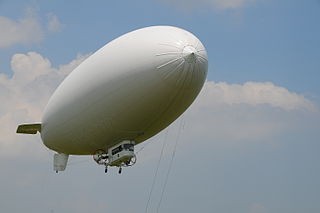Blimps and Zeppelins – the Future of Mining Transportation?
The transportation of heavy machinery to and from Australian mines can be a complicated and costly task.
Dealing with poor roads, long distances, unpredictable weather conditions and traffic can all attribute to the issues commonly faced when trying to get much needed machinery/vehicles from point A to point B.
While it hasn’t been debated too heavily in Australia, certain countries facing similar challenges with moving mining equipment have started to consider the possibility of using blimps and/or Zeppelins as a possible solution.

Where the benefits lie
One of the key benefits that could exist with the use of Zeppelins is an efficiency in cost. Russian miner, Robin Young, believes that using the likes of blimps to move mining machinery will ultimately be a more cost effective solution than the alternative of spending hundreds of millions to build new road infrastructure.
When compared to infrastructure costs and the transportation costs of using planes, blimps are far cheaper. Zeppelins themselves are capable of moving 227 tonnes at 160 kilometres an hour, while only presenting fuel costs at a third of those of traditional cargo planes. And, importantly, there is no need to deal with ground traffic or hazardous roads.
The adoption of blimps and airships as possible means of transport for mining equipment would also benefit the blimp/airship industry, which has always struggled ever since the Hindenberg disaster back in the 1930s. But the simple fact is that blimps and other airships are capable of operating with far greater safety thanks to non-flammable, stable gases.
The likelihood of adoption
Even though airships could offer a very viable solution to the transportation of heavy machinery, adoption depends purely on interest from those involved in both the mining and logistics industries. In Canada, Hybrid Air – who offer safe airship transportation solutions – have noted its currently in talks with two companies regarding the haulage of mining equipment via airships.
But while the use of airships may be popular in some areas and countries, there are still those that oppose. For example, Russian mining countries are split on the possibility of using airship solutions.
In Australia, it’s unclear where mining businesses stand in considering airships as a future transportation solution. Airships don’t just have to be a viable, cost effective solution, but they also need to be efficient, safe and better than what already exists. Ultimately, only time will tell as to whether or not mining companies the world over embrace airships as a chief transportation method.
Do you think airships are a good freight solution for mining equipment and heavy machinery? Share your thoughts in the comments below.